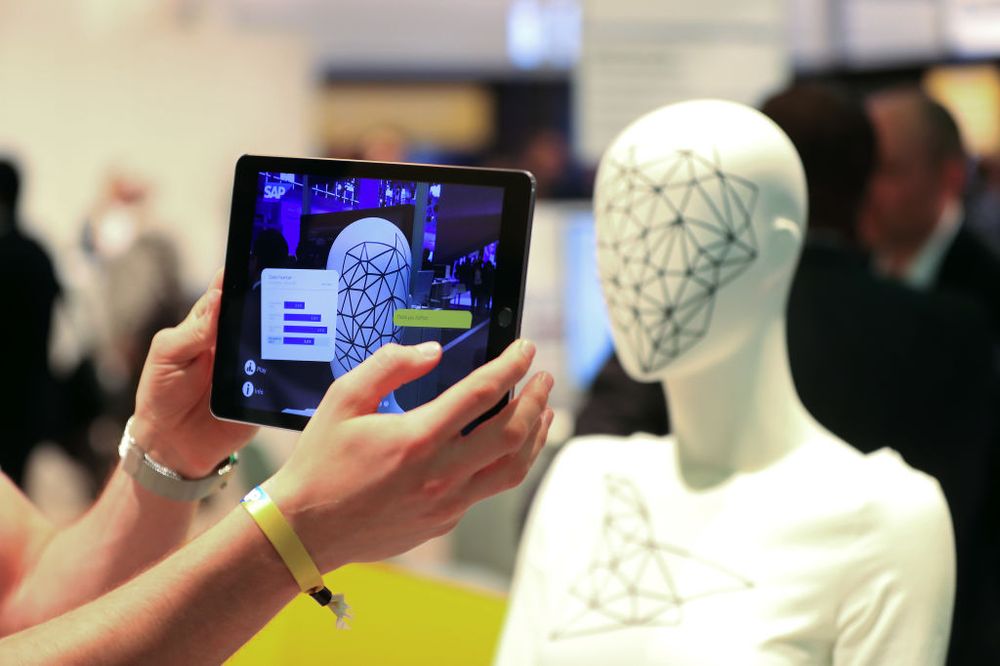Source- bloomberg.com
It’s been another year of relentless artificial-intelligence hype and incremental AI achievement. Machines still beat humans only in carefully constructed environments or at narrow tasks. The good news is that, as the technology progresses, the race for leadership is still wide open, and even Europe, where politicians fret that the continent is lagging behind China and the U.S., is still quite competitive.
According to the Artificial Intelligence Index 2018 annual report, whose steering committee includes leading AI scholars such as Yoav Shoham of Stanford University and Erik Brynjolfsson of the Massachusetts Institute of Technology, AI has progressed on all the measures tracked. Some of the metrics, from the number of published papers and conference attendance, to mentions on corporate earnings calls and in parliamentary hearings, measure the hype. Others reflect improving performance. This year, AI has gotten more accurate and much faster at image detection. It’s also improved at parsing the grammatical structure of sentences, answering multiple-choice questions and translation. Whether this progress brings us closer to truly superhuman AI is a different matter.
On the translation front, a measure called Bilingual Evaluation Understudy is used to determine accuracy. It compares machine-translated sentences to those rendered by human experts, and this year almost half the machine translations between English and German news articles measured up to the human ones. This year, Microsoft announced with much fanfare that its AI did just as well as humans in translating news from Chinese into English. But the underlying paper reports much lower scores for the Chinese translations than for the separately published German ones, and accuracy scores from human evaluators of between 50 percent and 70 percent. Machine-translation algorithms still produce plenty of gibberish and are really mostly useful, in a limited way, to humans with some understanding of both languages and the context.
Improved image-recognition has worked wonders in some fields of medicine. For example, Google has developed a system for grading prostate cancer that does it more accurately than U.S. pathologists, and a Stanford team has achieved similar success with skin cancer. Where lots of data exist and precision is valued, AI can help humans make better decisions, even though it still messes up regularly when trained on biased data sets or is intentionally tricked. Humans are less prone to misidentifying objects and are better able to correct for their biases.
Data-mining and question-answering skills can make AI appear almost human at times. This year, IBM presented the current iteration of its Project Debater, which tries to debate humans hewing to the rules of such competitions. The exercise looks impressive — the machine instantaneously gathers and orders information, packs it into grammatically correct sentences and inserts pre-written jokes almost in the correct places. But as an AI expert who was present discovered, it tended merely to repeat its points in response to arguments. While the idea of having a machine, with its superhuman ability to analyze data, take part in brainstorms is exciting, “We are most certainly not on the verge of seeing AI systems out-debating their human counterparts,” wrote the expert, Chris Reed of the University of Dundee in Scotland. “Today’s AI technology is as far from these scenarios as the Romans’ experiments with steam power were from the industrial revolution,” he concluded.
As often happens with technological advancement, AI gets too much attention too early. But if in previous years some AI scholars grumbled that the hype might impede progress because people would become disappointed in the unfulfilled promise of a shiny toy, attention to AI has become too sustained and the financial and intellectual resources thrown at it too enormous for that to happen. Now, competing in AI is a matter of prestige for major nations.
So far, the U.S., Europe and China all have their strengths. Data in the Artificial Intelligence Index report show the U.S. as the runaway leader in patents; along with China, it leads in the number of papers submitted to and accepted by major AI conferences. But it is in Europe where the greatest number of AI papers (28 percent of the total, compared with 25 percent for China and 17 percent for the U.S.) are published. A report published by the European Commission’s Joint Research Center this month says that the European Union is home to a quarter of the approximately 35,000 entities working in artificial intelligence today, compared with 28 percent for the U.S. and 23 percent for China.
According to McKinsey & Co., Europe also matches competitors when it comes to AI adoption in business, especially in process automation.
This is likely to come as a surprise to European leaders, especially German and French ones, who often talk about falling behind. Earlier this month, German Economy Minister Peter Altmaier supported the idea of a pan-European state-led corporation, along the lines of Airbus, to compete in AI.
Europe doesn’t really need massive state interference to catch up, as it did in the 1960s and 1970s when Boeing dominated the aircraft industry. But the EU and governments in North America and China will be pouring more resources into AI in the coming years, and distinct development models are likely to crystallize in the key competing countries as regulation follows the money. The Joint Research Center report names three approaches that are easy to match to their regions of origin: “AI for profit,” “AI for control” and “AI for society,” a discipline it defines as “a human-centered, ethical and secure approach.”
Regardless of how well the technology will eventually work, major nations have already co-opted it for soft power and ideological competition. It’s a rerun of last century’s space race, not seen in this pure a form for many decades.
